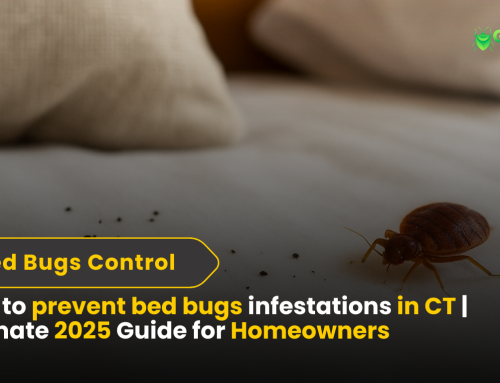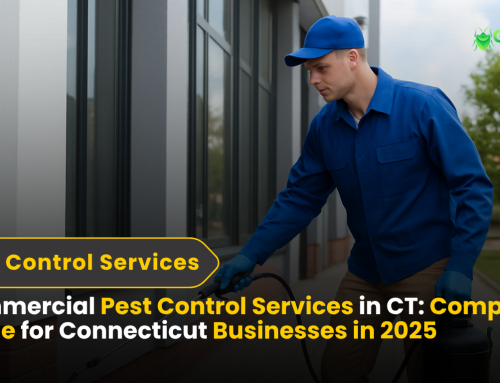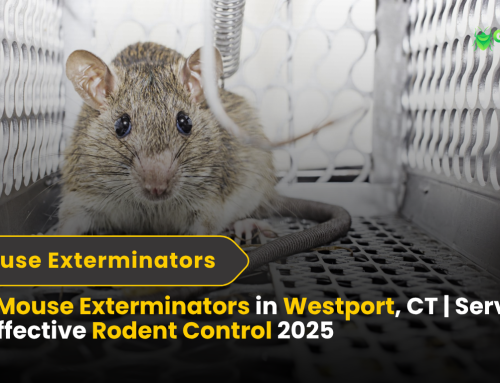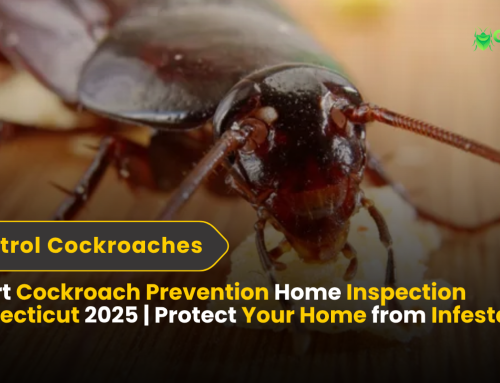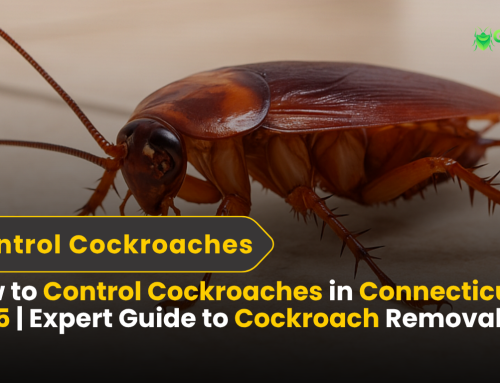Commercial Wasp Control in CT | 2025 Business Solutions
If you manage a business property in Connecticut, wasps are more than just a nuisance—they are a serious health and safety concern. Commercial wasp infestations can affect employees, customers, and property alike, leading to stings, allergic reactions, liability issues, and even operational downtime.
Professional commercial wasp control in CT ensures nests are removed safely and effectively, while also providing preventative strategies to avoid future infestations. Taking early action protects both people and property, keeping your business operations smooth, safe, and compliant.
Why Commercial Wasp Control in CT is Crucial for Businesses
Wasps present multiple risks to commercial properties, which is why businesses cannot afford to ignore them:
- Health Hazards: Wasp stings can cause severe allergic reactions, leading to emergencies. Even one sting can trigger anaphylaxis, a medical emergency that exposes employers to potential liability.
- Employee Safety: Outdoor areas such as patios, loading docks, dumpsters, or construction zones become unsafe with wasp activity. Employees distracted or injured by wasps are less productive and more at risk of injury.
- Customer Experience: For businesses like restaurants, hotels, and retail shops, visible wasp nests create negative impressions and deter customers from visiting.
- Business Liability: Workplace injuries from wasps can result in insurance claims, OSHA scrutiny, or lawsuits.
- Property Damage: Large nests built near vents, HVAC units, attics, or roof eaves can compromise building integrity over time.
Pro Tip: Early detection and scheduled inspections are the most cost-effective way to prevent costly infestations and avoid reputational risks.
Industries in Connecticut Most Affected by Wasps
While wasps can invade any property, certain industries are at higher risk:
- Restaurants & Cafés: Outdoor dining areas and dumpsters attract wasps due to food and sugary drinks.
- Warehouses & Distribution Centers: Open loading bays and waste areas create easy nesting opportunities.
- Hotels & Resorts: Pools, outdoor dining, and garden spaces are prime spots for wasps, impacting guest safety.
- Schools & Daycare Centers: Children are more vulnerable to stings, making prevention critical.
- Healthcare Facilities: Wasps near entrances pose a major risk for sensitive patients.
- Construction Sites: Exposed structures, scaffolding, and debris piles attract nesting wasps.
Case Example (Stamford, CT): A popular restaurant received customer complaints about wasps swarming its outdoor seating. A commercial pest control team removed multiple paper wasp nests, implemented trash management strategies, and set up seasonal monitoring. The restaurant reported a 70% drop in wasp sightings within weeks.
How Can You Tell If Your Commercial Property Needs Wasp Control in CT?
Recognizing early signs of wasp activity is critical for businesses.
Warning Signs:
- Frequent Sightings: Wasps hovering around entrances, trash areas, or employee break zones.
- Visible Nests: Attached to eaves, utility boxes, fences, or trees near customer spaces.
- Employee Reports: Multiple sting incidents or allergic reactions reported by staff.
- Seasonal Trends: Wasp activity in Connecticut peaks from May through September, when outdoor activity is highest.
Case Example (Hartford, CT): A warehouse faced repeated wasp problems near its loading docks. After hiring a pest control company, nests were removed within 24 hours, and preventive bait stations were installed. Operations continued without disruption.
What Commercial Wasp Control in CT Methods Are Most Effective?
Professional exterminators in Connecticut use safe, targeted, and effective techniques to eliminate wasps and prevent their return.
Common Wasp Control in CT Control Methods:
- Nest Removal: Technicians use protective gear and specialised equipment to eliminate nests safely.
- Chemical Treatments: EPA-approved insecticides applied to nests and high-activity zones—formulated for commercial safety.
- Vacuum Extraction: Effective for large infestations in warehouses, attics, or wall voids.
- Traps & Baits: Strategic placement reduces wasp populations around customer-heavy areas.
- Preventative Maintenance: Seasonal treatments and inspections to stop nests from returning.
Checklist for Property Managers
- Inspect all high-risk areas (roofs, dumpsters, HVAC units).
- Schedule spring and summer inspections.
- Confirm technicians follow OSHA safety protocols.
- Implement a maintenance contract for year-round protection.
How to Choose the Right Company of Wasp Control in CT
Not all pest control providers are equipped for commercial-scale problems. Consider these criteria:
- Licensed & Insured: Ensure certification for commercial pest management in CT.
- Commercial Experience: Restaurants, warehouses, and schools have unique risks—choose a provider with industry-specific expertise.
- Emergency Response: Fast removal reduces downtime and protects customers.
- Eco-Friendly Methods: Prioritise providers using low-toxicity, EPA-approved products.
- Reputation: Look for reviews, testimonials, and case studies from other Connecticut businesses.
Pro Tip: Ask if the company offers a guarantee or warranty on treatments—an indicator of reliability and confidence.
Preventative Measures for Commercial Properties
Even after removal, prevention is the key to long-term control.
Steps Businesses Should Take:
- Seal Entry Points: Inspect vents, walls, roof gaps, and utility openings.
- Maintain Landscaping: Trim trees and shrubs, remove overgrowth, and eliminate clutter.
- Secure Waste Areas: Cover trash bins tightly and clean food waste promptly.
- Regular Inspections: Schedule quarterly pest inspections.
- Staff Training: Educate employees to spot nests early and report sightings.
Case Example (Bridgeport, CT): A healthcare facility reduced wasp issues by adding covered dumpsters, quarterly pest inspections, and staff awareness training. Since then, no major infestations have occurred.
Common FAQs About Commercial Wasp Control in CT
Q1: How quickly can wasps be removed from a commercial property?
A: Most nests can be eliminated the same day, minimizing downtime.
Q2: Are treatments safe for employees and customers?
A: Yes. Licensed technicians use EPA-approved treatments with minimal exposure risk.
Q3: How often should inspections be scheduled?
A: Ideally spring and mid-summer, when wasp activity peaks. Large facilities may benefit from quarterly inspections.
Q4: Can staff handle Wasp Control in CT on their own?
A: Basic prevention (sealing gaps, securing trash) is helpful, but professional removal is always safer for large or hidden nests.
Q5: Do commercial pest control companies in CT handle emergencies?
A: Yes. Many offer 24/7 emergency response for businesses facing immediate threats.
Conclusion: Protect Your Business with Professional Wasp Control in CT
Wasps pose a serious threat to commercial properties in Connecticut, but professional Wasp Control in CT ensures safety, compliance, and peace of mind. From rapid nest removal to seasonal inspections and preventive measures, expert pest control helps businesses avoid liability, protect employees, and maintain customer trust.
Don’t wait until a wasp problem disrupts your business. Contact us today to schedule a commercial Wasp Control in CT and keep your property protected all year long.


